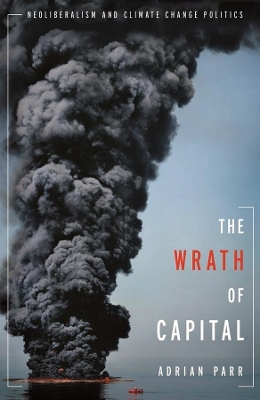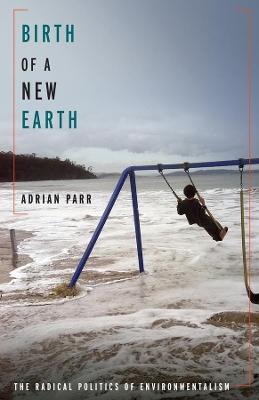New Directions in Critical Theory
2 primary works
Book 48
Although climate change has become the dominant concern of the twenty-first century, global powers refuse to implement the changes necessary to reverse these trends. Instead, they have neoliberalized nature and climate change politics and discourse, and there are indications of a more virulent strain of capital accumulation on the horizon. Adrian Parr calls attention to the problematic socioeconomic conditions of neoliberal capitalism underpinning the world's environmental challenges, and she argues that, until we grasp the implications of neoliberalism's interference in climate change talks and policy, humanity is on track to an irreversible crisis. Parr not only exposes the global failure to produce equitable political options for environmental regulation, but she also breaks down the dominant political paradigms hindering the discovery of viable alternatives. She highlights the neoliberalization of nature in the development of green technologies, land use, dietary habits, reproductive practices, consumption patterns, design strategies, and media.
She dismisses the notion that the free market can solve debilitating environmental degradation and climate change as nothing more than a political ghost emptied of its collective aspirations. Decrying what she perceives as a failure of the human imagination and an impoverishment of political institutions, Parr ruminates on the nature of change and existence in the absence of a future. The sustainability movement, she contends, must engage more aggressively with the logic and cultural manifestations of consumer economics to take hold of a more transformative politics. If the economically powerful continue to monopolize the meaning of environmental change, she warns, new and more promising collective solutions will fail to take root.
She dismisses the notion that the free market can solve debilitating environmental degradation and climate change as nothing more than a political ghost emptied of its collective aspirations. Decrying what she perceives as a failure of the human imagination and an impoverishment of political institutions, Parr ruminates on the nature of change and existence in the absence of a future. The sustainability movement, she contends, must engage more aggressively with the logic and cultural manifestations of consumer economics to take hold of a more transformative politics. If the economically powerful continue to monopolize the meaning of environmental change, she warns, new and more promising collective solutions will fail to take root.
Book 54
In response to unprecedented environmental degradation, activists and popular movements have risen up to fight the crisis of climate change and the ongoing devastation of the earth. The environmental movement has undeniably influenced even its adversaries, as the language of sustainability can be found in corporate mission statements, government policy, and national security agendas. However, the price of success has been compromise, prompting soul-searching and questioning of the politics of environmentalism. Is it a revolutionary movement that opposes the current system? Or is it reformist, changing the system by working within it? In Birth of a New Earth, Adrian Parr argues that this is a false choice, calling for a shift from an opposition between revolution and incremental change to a renewed collective imagination. Parr insists that environmental destruction is at its core a problem of democratization and decolonization. It requires reckoning with militarism, market fundamentalism, and global inequality and mobilizing an alternative political vision capable of freeing the collective imagination in order to replace an apocalyptic mindset frozen by the spectacle of violence.
Birth of a New Earth locates the emancipatory work of environmental politics in solidarities that can bring together different constituencies, fusing opposing political strategies and paradigms by working both inside and outside the prevailing system. She discusses experiments in food sovereignty, collaborative natural-resource management, and public-interest design initiatives that test new models of economic democratization. Ultimately, Parr proclaims, environmental politics is the refusal to surrender life to the violence of global capitalism, corporate governance, and militarism. This defiance can serve as the source for the birth of a new earth.
Birth of a New Earth locates the emancipatory work of environmental politics in solidarities that can bring together different constituencies, fusing opposing political strategies and paradigms by working both inside and outside the prevailing system. She discusses experiments in food sovereignty, collaborative natural-resource management, and public-interest design initiatives that test new models of economic democratization. Ultimately, Parr proclaims, environmental politics is the refusal to surrender life to the violence of global capitalism, corporate governance, and militarism. This defiance can serve as the source for the birth of a new earth.

